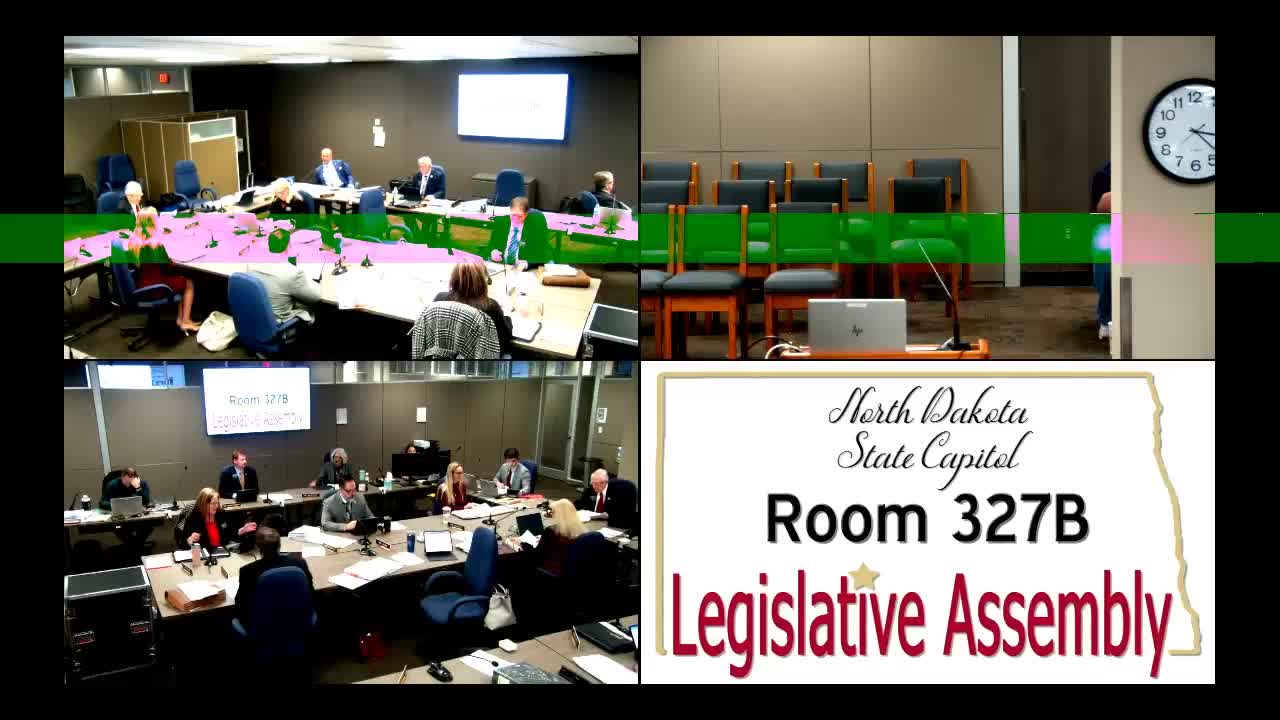House Judiciary panel backs bill making low-level THC possession a noncriminal citation for adults and juvenile infraction for minors
Get AI-powered insights, summaries, and transcripts
Subscribe
Summary
The House Judiciary Committee voted to recommend House Bill 1596 as amended, converting most low-level tetrahydrocannabinol (THC) possession cases for adults to a $150 noncriminal citation and directing similar cases involving people under 18 into the juvenile system as infractions.
The House Judiciary Committee voted to give House Bill 1596 a do-pass recommendation as amended, moving most low-level tetrahydrocannabinol possession for adults to a noncriminal citation with a $150 preset fine and treating similar conduct for people under 18 as juvenile infractions.
Supporters said the change is meant to reduce court and jail workloads and recover some penalty revenue without imposing full criminal prosecutions. Representative Vetter, a cosponsor, said the amendments place juveniles in the juvenile system and treat them differently from adults.
Opponents and some committee members objected to reducing penalties without clearer escalators for repeat offenders. "I might be old school, but I really struggle when we keep dropping the penalties and allowing more because we've got jails full and courts full," Representative Twit said, adding he would vote against the amendment and the bill.
Committee discussion and the bill text show the amendment: for adults, certain low-level THC possession would be handled as a noncriminal citation with a $150 fine akin to a traffic ticket; for persons under 18, the comparable conduct would be treated as an infraction handled through juvenile procedures. The amendment also lowers quantity thresholds for tetrahydrocannabinol in concentrated or oil forms, reflecting that oil-based products use smaller weights; the transcript did not specify the exact gram thresholds in the amendment text.
Members noted how repeat offenses are treated elsewhere under statute: a class B misdemeanor carries a maximum of 30 days imprisonment and a $1,500 fine; an infraction can carry a maximum fine of $1,000. The committee discussed statutory language that permits escalation from infractions to a class B misdemeanor if a person has multiple prior infractions within a year. Representative Vedder said the bill's intent is to take low-level cases out of court and avoid the state costs of prosecution and indigent defense.
Representative Overton argued the amendment may increase enforcement follow-through: "It's actually strengthening because they aren't taking these cases. ... With this, ... they have to pay a fine. So the sheriff, instead of filling out a bunch of paperwork, he can just leave a ticket on their window and they do get the penalties." The committee also discussed a section on sealing court records under the proposed amendment.
The committee first voted to adopt the proposed amendments (motion by Representative Vedder, seconded by Representative Wolf). The roll call on the amendments showed the motion passed 11 to 1 with two absent and not voting. After further debate, the committee voted to give the bill a due-pass recommendation as amended (motion by Representative Vetter, seconded by Representative Van Winkle). The due-pass motion carried 11 yes, 1 no and 2 absent, not voting. Representative Vetter was named as bill carrier.
The bill as amended now replaces criminal prosecution for many low-level THC possession cases with a noncriminal financial penalty for adults and routes juvenile cases to juvenile court as infractions. The committee did not add a new, explicit graduated monetary penalty for repeat noncriminal citations within the amended text; members noted a statutory mechanism already exists for multiple infractions escalating to a misdemeanor, but committee members also said the noncriminal citation construct in the bill may not be subject to that same escalation language, and the transcript did not resolve that point.
The committee record shows a mix of concerns about deterrence and cost savings; supporters emphasized reduced court and jail burdens, while critics said the amendment lowers penalties and may not deter repeat offending. The bill will move forward to the floor with the committee's due-pass recommendation.
